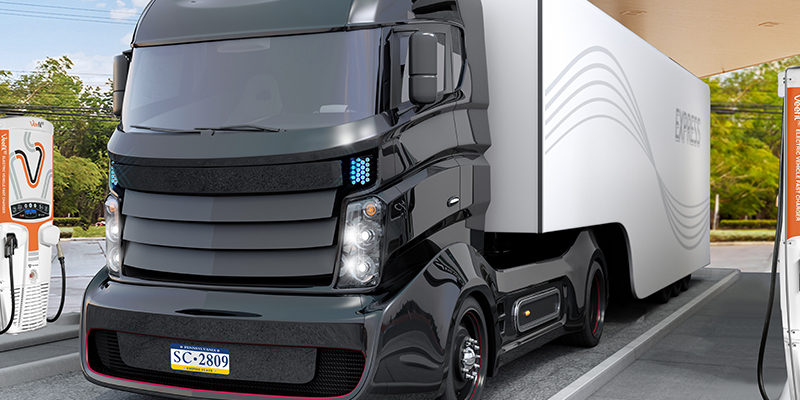Electric Truck Integration Poses Challenges for Fleets, Study Shows
Many fleets are looking to integrate electric trucks into their operations but are stymied by a series of obstacles that will slow the shift from diesel vehicles.
That’s the conclusion of a new report issued by the California Trucking Association, environmental nonprofit Ceres, and Navigant Research. Amazon.com funded the study.

“Continuous improvements in EV technologies are producing lower costs, greater range and faster charging, further enabling the use of EVs in the commercial transportation sector,” according to the May 5 report. “Though the trend is encouraging, fleet operators face challenges that, if not confronted, may slow this progress.”
Electric trucks are nearing commercialization because the main cost of EVs — the battery — has declined as much as 80% over the past eight years, according to the CTA/Ceres report. That is expected to drop an additional 50% over the next decade, which would put upfront costs of many EVs below their diesel counterparts by 2030, the report said.
Additionally, recurring costs such as fuel — in this case electricity to power the vehicles — and maintenance are lower than internal combustion trucks, the report said. That will provide significant operational cost savings and encourage adoption.
But significant hurdles still remain.
Charging, for example, takes far longer than filling the fuel tanks of a diesel truck, the report noted.
